Popular Foods That Make You Look Older, Says Science
Believe it or not, when it comes to maintaining a youthful appearance, what you eat can have a significant impact. Nutrients, after all, influence our whole system and our skin is the largest organ in our body.
In other words, what you chow down literally shows up on your face. New York City-based dermatologist Gary Goldenberg, MD told Byrdie that the biggest offenders trigger inflammation, which can compound existing skin issues. Also, foods that contain antibiotics can mess with your microbiome (is there anything that isn't connected to gut health?), which can impact your skin.
Because a youthful appearance is characterized by clear, taut, and supple healthy skin, it stands to reason that anything that mars it—puffiness, acne, rosacea, and loss of elasticity— ages you visually.
If you're looking to preserve a youthful appearance, steer clear of these foods that make you look older. Then, be sure to check out our list of The 7 Healthiest Foods to Eat Right Now.
White bread
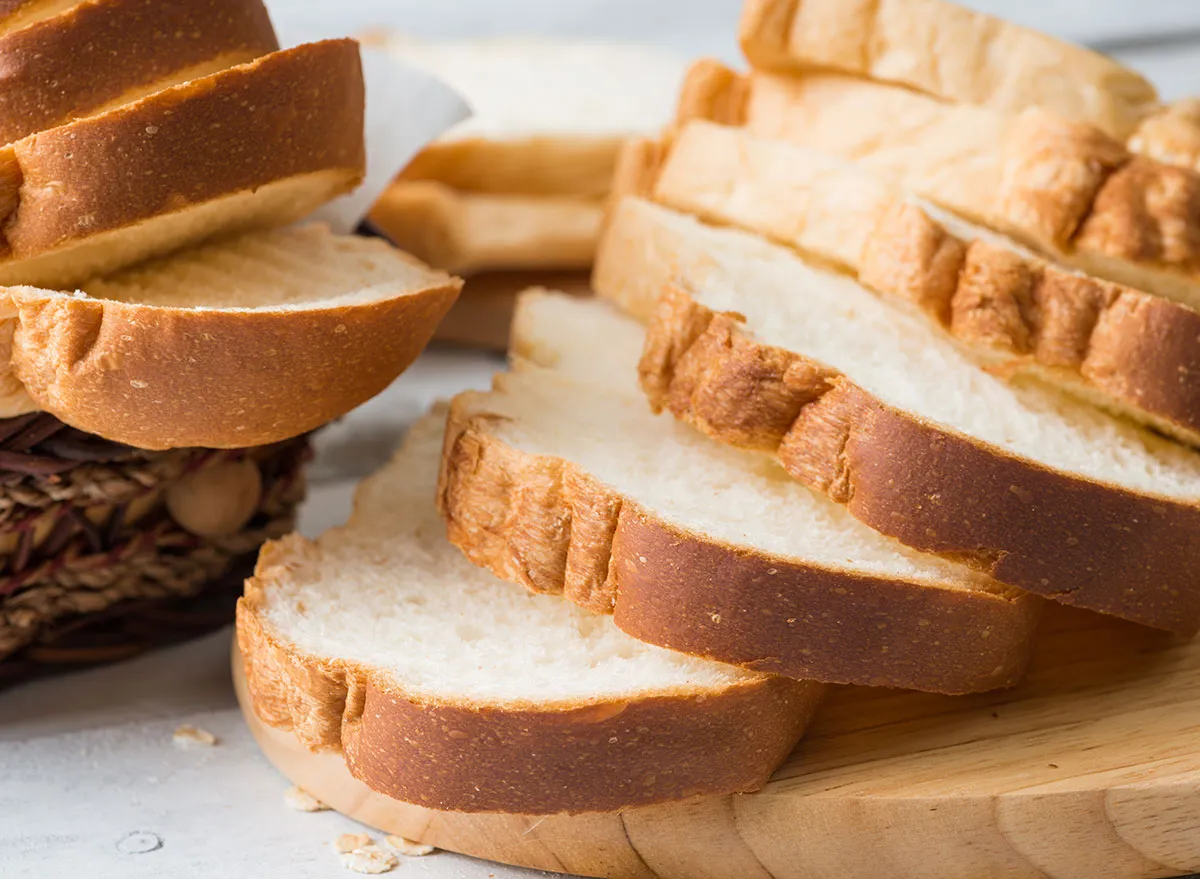
Whether you know it or not, most store-bought bread contains refined sugar. That's right, making a sandwich with bread that contains added sugar (the worst kind) is like slapping some sliced turkey between two pies of cake.
And sugar is a well-known enemy when it comes to preserving a youthful look. In the program Sugar-Free Three, a plan to eliminate added sugar to lose weight and improve health, dermatologist Whitney Bowe. M.D. reveals that when you have too much glucose and fructose in your diet, your skin becomes less elastic and appears to age more rapidly. The not-so-cute nickname for that effect: "sugar sag."
Cheese
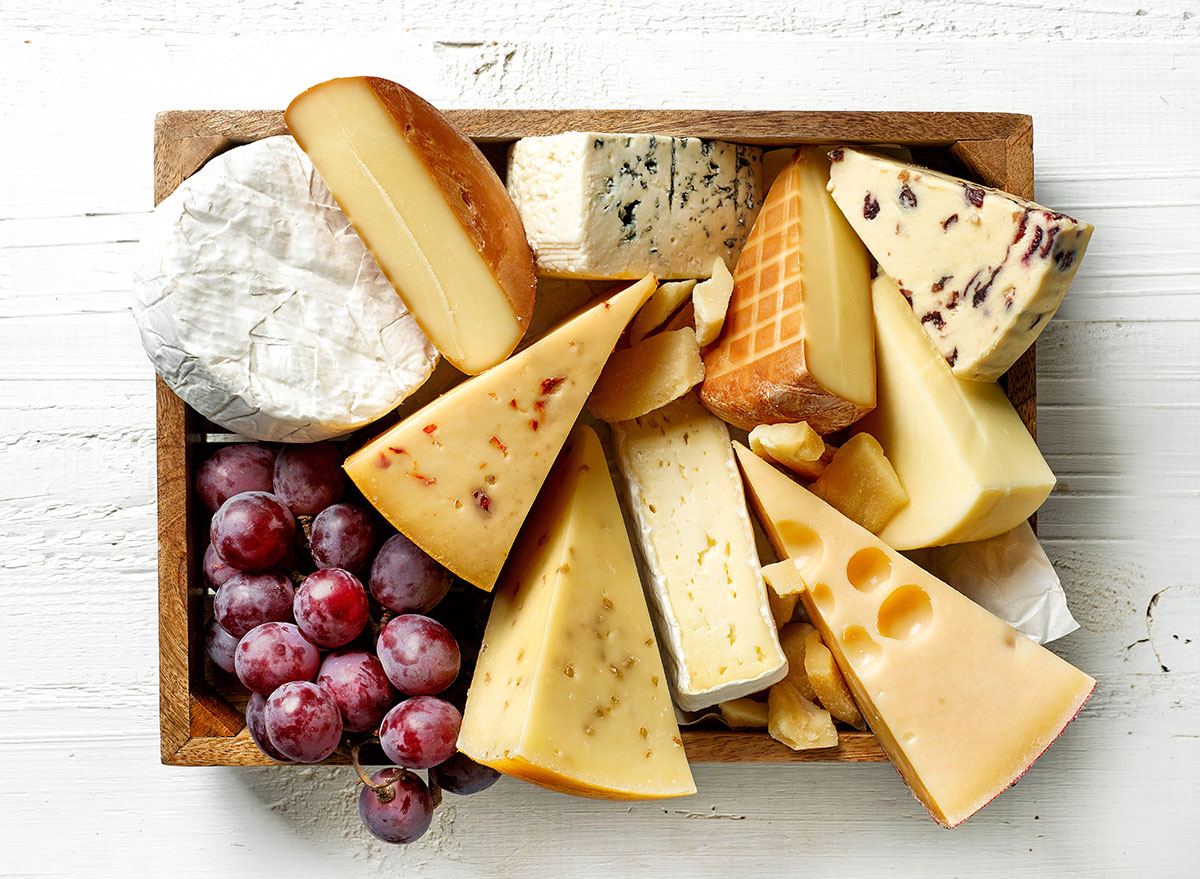
One of the worst offenders for healthy skin? Cheese. Dairy products increase oil production in your skin, which can end up blocking your pores—sometimes even leading to adult acne! This may be in part because dairy cows are given artificial hormones, which end up in their milk and, in turn, the dairy products we consume. And according to research, those artificial hormones can mess up your delicate hormonal balance when you consume dairy products.
That doesn't mean you have to cut out cheese entirely—just skip the cheese-laden products like pizza or mac and cheese. And when you do buy cheese, opt for one that's made from organic, grass-fed dairy.
Having trouble navigating nutrition label lingo? Us too—but reading this will help.
Ice cream

This summertime staple packs a one-two punch: It contains both sugar and dairy, so you're getting two potential inflammatory ingredients in every spoonful. If you can't part with the frozen treats, at least consider switching to a dairy-free version. Here are 20 dairy-free frozen desserts to try.
Whey protein
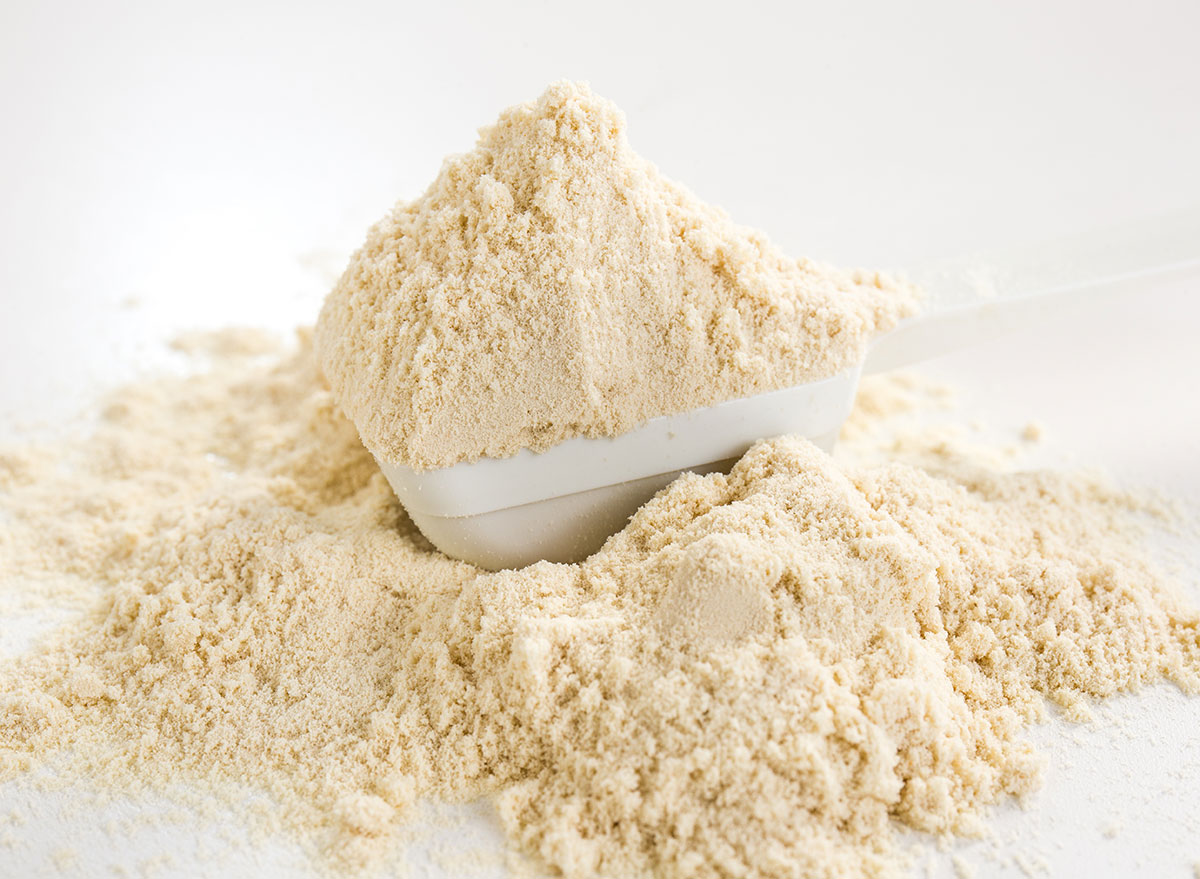
Whey protein is a staple in protein bars and powders, but it may be time to trade it out for a vegan alternative, considering its negative relationship to your skin. Whey protein increases the production of the hormone IGF-1 (insulin-like growth factor 1) causing the skin to produce more sebum.
Whey protein also disrupts your body's blood sugar, creating inflammation in the body which can end up appearing as skin issues, explains Dr. Bowe.
Artificial sweeteners
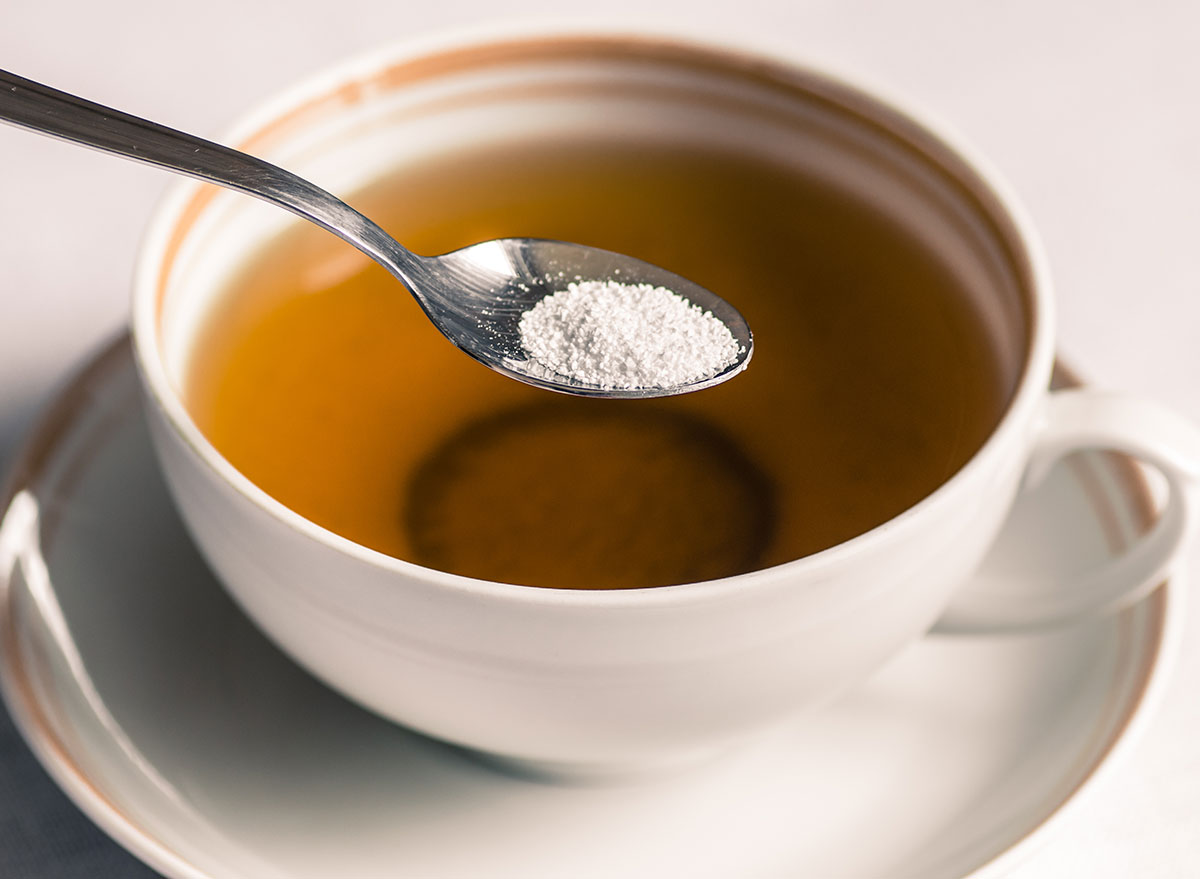
Okay, so artificial sweeteners are not food, but you sprinkle them on food and in beverages—and that can cause all sorts of skin issues. Dr. Bowe explains how artificial sweeteners mess with your microbiome, which in turn messes with your skin in this info-packed video.
The summary, from Dr. Bowe: "Artificial sweeteners have the power to disrupt the gut's microbial inhabitants so much that they negatively affect metabolism and blood sugar balance…those diet foods and beverages not only increase the risk of insulin resistance and diabetes, but also skin disorders like acne and rosacea through the domino effects of increased inflammation. High insulin levels are a primary cause of hormonal imbalances and skin disorders… Since artificial sweeteners throw your blood sugar balance off, they too are capable of triggering skin issues."
Processed meats
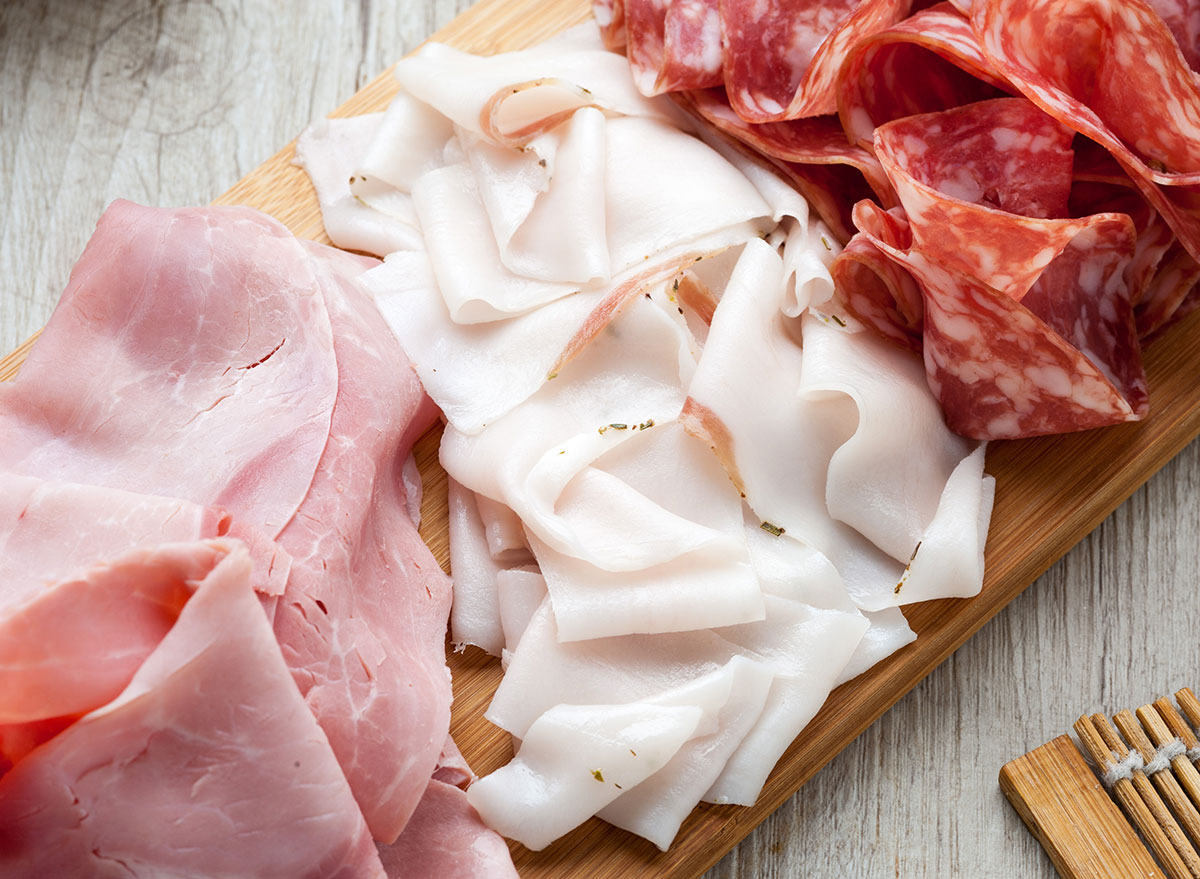
Processed meats—like bacon, hotdogs, deli meats—are full of nitrates which can "damage the skin by causing inflammation and wrinkles," Dr. Howard Sobel, founder of Sobel Skin and attending dermatologist and dermatologic surgeon at Lenox Hill Hospital in New York City, told Eat This, Not That!. They are also often high in sodium, which can "weaken collagen production"—not a good thing, considering collagen is essential for healthy skin, hair, nails, and bones.
Get even more healthy eating tips straight to your inbox by signing up for our newsletter! After, read these next:









